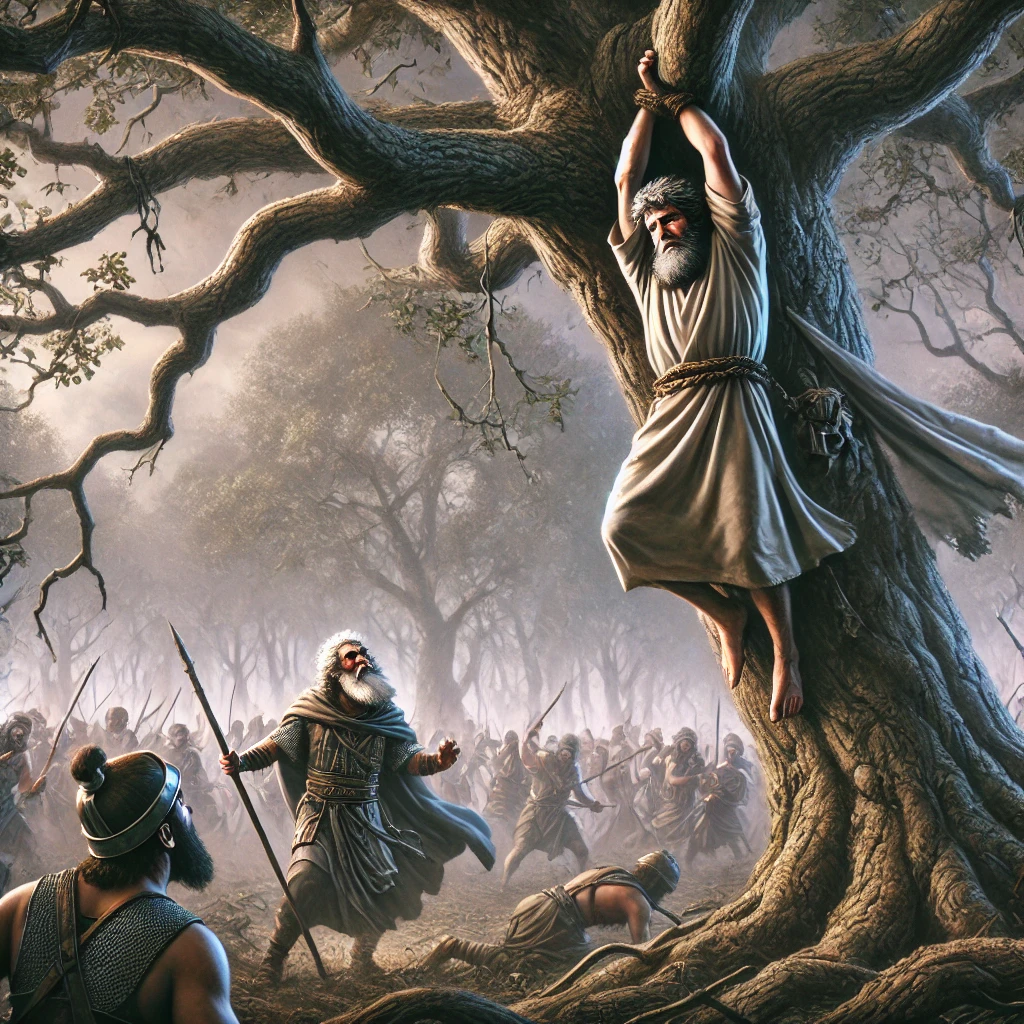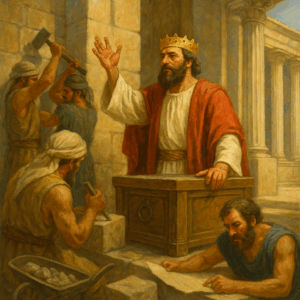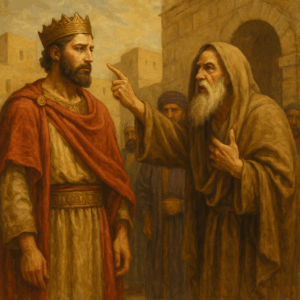Introduction.
2 Samuel Chapter 18 narrates the climactic and tragic conclusion to Absalom’s rebellion against his father, King David. This chapter details the Battle of Ephraim’s Wood, Absalom’s death, and David’s profound grief. Themes of loyalty, justice, and the consequences of rebellion are central to this narrative, offering timeless lessons about leadership and familial relationships.
The battle of Ephraim’s wood.
The chapter begins with David organizing his forces to confront Absalom’s army. Despite his commanders’ protests, David insists on staying behind in Mahanaim for his safety. He entrusts Joab, Abishai, and Ittai with leadership roles, dividing his forces into three groups.
The battle takes place in the forest of Ephraim, where David’s forces decisively defeat Absalom’s army. The dense forest contributes to the heavy losses suffered by Absalom’s troops, emphasizing the chaotic and unforgiving nature of the terrain.
Absalom’s death.
During the battle, Absalom’s mule passes under a great oak tree, and his hair becomes entangled in the branches, leaving him hanging helplessly. Joab, ignoring David’s explicit command to spare Absalom, kills him with three javelins. Joab’s actions, while decisive, highlight his disregard for David’s wishes and the complexities of loyalty and justice.
David’s grief.
News of the victory and Absalom’s death is brought to David by two messengers. Upon learning of his son’s fate, David is overcome with grief, crying out, “O my son Absalom! My son, my son Absalom! If only I had died instead of you.” David’s lament underscores the profound pain of a father who, despite his son’s betrayal, mourns his loss deeply.
Key lessons from 2 Samuel chapter 18.
- The Consequences of Rebellion: Absalom’s death serves as a somber reminder of the consequences of rebellion and the futility of opposing God’s anointed leader.
- The Tension Between Justice and Mercy: Joab’s decision to kill Absalom contrasts with David’s desire for mercy, highlighting the tension leaders face in balancing justice and compassion.
- The Emotional Toll of Leadership: David’s grief reveals the personal cost of leadership and the complex emotions tied to family and duty.
Conclusion.
2 Samuel Chapter 18 is a poignant narrative of conflict, loss, and reconciliation. The chapter’s events underscore the importance of loyalty, the consequences of rebellion, and the enduring pain of familial strife. As we reflect on this chapter, may we learn to navigate challenges with wisdom, balance justice with mercy, and cherish our relationships.






